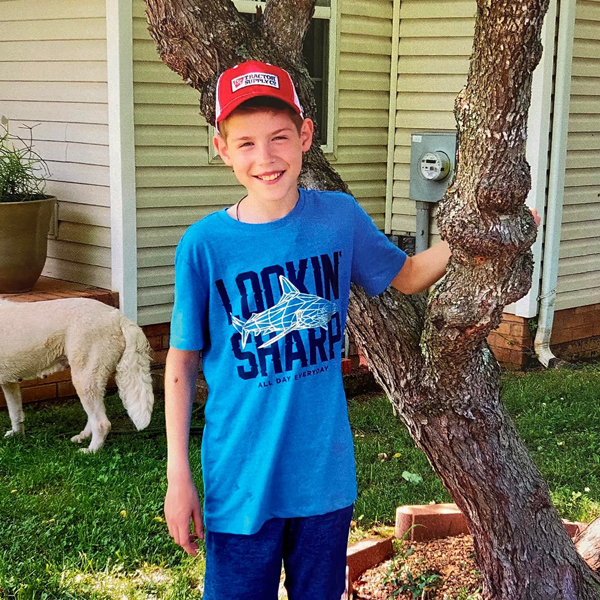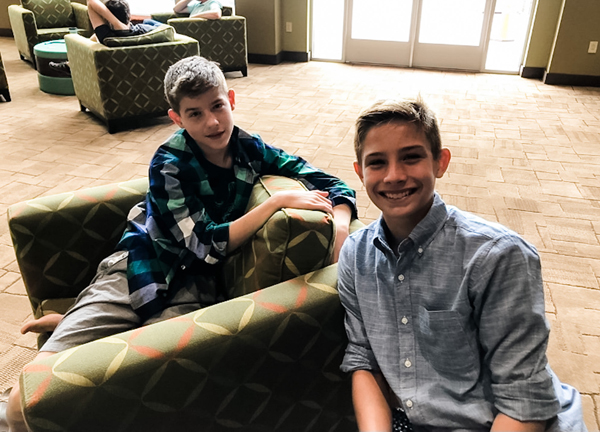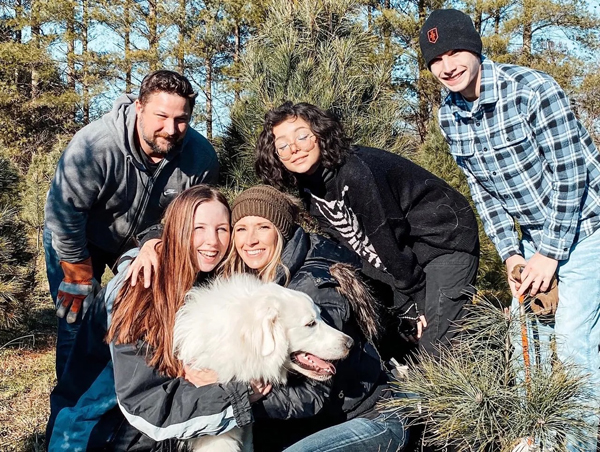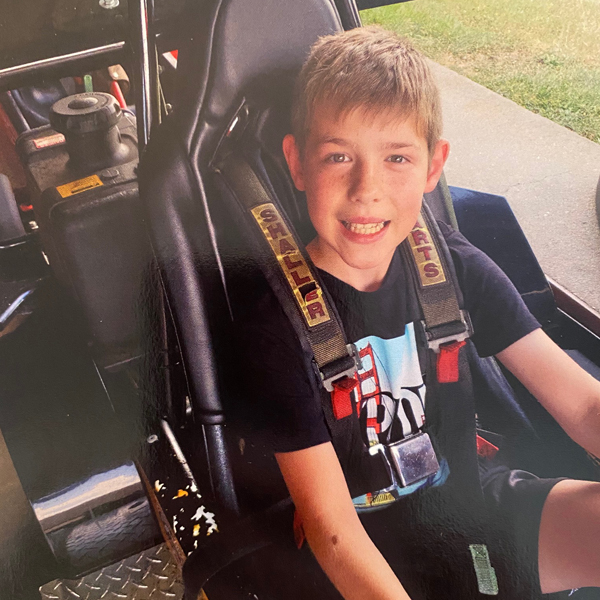
A Murfreesboro family is working to adopt and bring a Ukrainian teenager to the U.S. by springtime, even during this time of turmoil in the Ukraine and surrounding countries.
An orphan in Ukraine, 15-year-old Yevhen, will age out of the Ukrainian orphanage system when he turns 16. The Benson family is working around the clock to adopt him and bring him to the United States before he is put out on the streets in Ukraine. The Bensons have created a website to unite with the community that has gotten to know and care for Yevhen when he visited Tennessee in the past, and to raise funds for the international adoption.
Yevhen, who visited the U.S. and stayed with foster parents, met the Bensons’ son, Iver, at a church youth group.
“I met Yevhen in the summer of 2019. He came to our church, and he was visiting for the whole summer, and me and my friends got really close to him,” Iver said. “We got to show him how great America is and some of the fun stuff we get to do every day that he doesn’t get to do in the Ukraine.”
Iver’s mom, Ashley Benson, added that “the group of boys brought him into the group, and they included him as best as possible and they have gotten over the language barrier [the boy speaks a combination of Russian and Ukranian].”
The communication barrier didn’t matter much, Iver said.

Yehven and Iver, 2019
“It didn’t really make a difference because we were usually playing sports or doing something active,” he said. “It wasn’t very hard to communicate with him. He seemed to understand, and we were able to grow a pretty close bond to him.
“He liked playing tag with us. We played a big game of tag all summer, he likes tug of war—we played that at church one night. He liked the big inflatables we had at the big parties in the summer, going on those and racing us through.”
When Yevhen was back in Ukraine, Iver kept in touch with him through Instagram, texts and video chats.
“He’s been able to watch us,” Iver said, “and we’ve been able to see some of the stuff he talks about. He’s been able to see how we do stuff here still and how we’ve changed over the years.”

He’s one of the guys—he just lives over 5,000 miles away, Ashley said.
Throughout his life, Yevhen’s birthparents have not been involved in his life, Ashley said, but they also had not signed over custody rights, so Yevhen could be adopted.
“Then this summer, the parents were approached in one last attempt to see if they would sign over their custody rights so that he could be adopted,” Benson said, “because in the Ukraine at age 16 they age out of the system—they are kicked out—and at that point they are on their own,
they aren’t educated well, they don’t have support and the statistics for these kids are not great.”
After his birth parents signed the necessary forms this past summer, Yevhen is now eligible for adoption, just in time.
“We’d never thought about or planned this,” Benson said. “When my husband got home, he said he needs to be that boy’s dad—‘he needs a dad and I need to be it.’ Then I talked to my son the next day—we said your dad and I were talking about this, and what would it look like if we adopted him. My son said he has been praying about this for a long time, and he knows he needs to be here.”
Iver’s dad said that a reality set in when he first met the sweet boy.
“He was just like my own son, but he was going to get on an airplane and head back to a foreign land and live in an orphanage,” Jeremy Benson said. “I knew my son had hopes, dreams, and was excited about his future. I started to think about this boy—did he have the same thoughts, hopes, fears, or a plan like my son? Then I thought, ‘If he did, who would be there to help, push, pray or walk along with him?’”

Ashley Benson said they are working as fast as they can because Yevhen turns 16 in May 2022. They are submitting paperwork and working with home studies and social workers for clearance to adopt, and they need to raise money because it costs about $55,000 to adopt internationally.
The family has a webpage called “Team Yevhen” for the many people over the years who have invested in him, prayed for him when he was here, for the women who would host him—Yevhen’s community.
Read Yevhen’s story at teamyevhen.com or on a Team Yevhen Facebook group page.
A GoFundMe page is also set up to donate and help with the cost of Yevhen’s adoption.
“I don’t know how everything will work out. There are a lot of question marks and of course there is the conflict with Russia,” Ashley Benson said. “But we are hoping to possibly also bring our son with us when we go because he is the touchpoint for Yevhen. [Yevhen] is working very hard to learn English, he has aspirations to go to college, he likes cars. I don’t know if he knows what his future looks like in the Ukraine.
“It’s a big deal and there’s no length we won’t go to when we see somebody who has hopes and dreams.”
___
Ukrainian Orphans Face a Grim Future
(From the Hope Now ministry, hopenowusa.org)
Living conditions at Ukrainian orphanages are very difficult for the children who end up there. Since they come from backgrounds that are usually complex and lacking in love and parental care, their situation often goes from bad to worse.
For example, Olga, one of numerous Ukrainian orphans, shares a large room with eight other orphans and uses the communal girls bathroom down the hall, where she may have a shower once a week. (During the daytime hours, the children use outhouses.) In Ukraine, orphans are given bunks to sleep on and donated clothing to wear. Orphanages also provide schooling, but the lessons are often outdated, leaving orphans far behind the education level of other children. Meals are high in carbohydrates and low in protein, with virtually no fresh fruits or vegetables served. After school, the caregivers keep the children occupied with chores, homework tasks and busywork.
Around the age of 16, orphans in Ukraine must leave the orphanage. There is no funding for them to remain, and most leave without the basic skills to protect or provide for themselves. These orphan graduates face a grim future, as they are left to fend for themselves in a world that is not welcoming to them and for which they are vastly unprepared.
Because many orphans have nowhere else to turn, 60–70% of Ukrainian orphans become involved in prostitution and organized crime. Twenty percent of children graduating from internats (boarding schools) at age 16 end up in prison. Ten percent go on to commit or attempt suicide. Others embrace alcoholism and produce a new generation for the orphanage. Less than one percent make it to a university or higher education.













